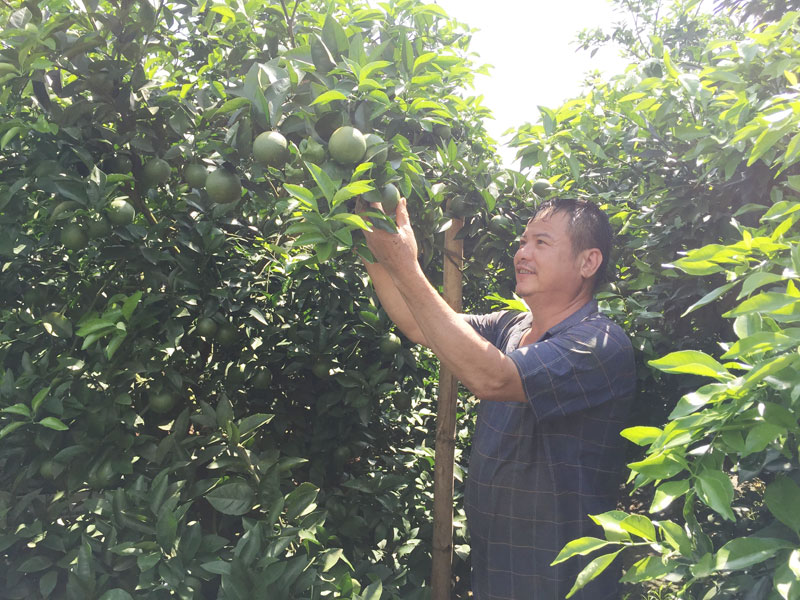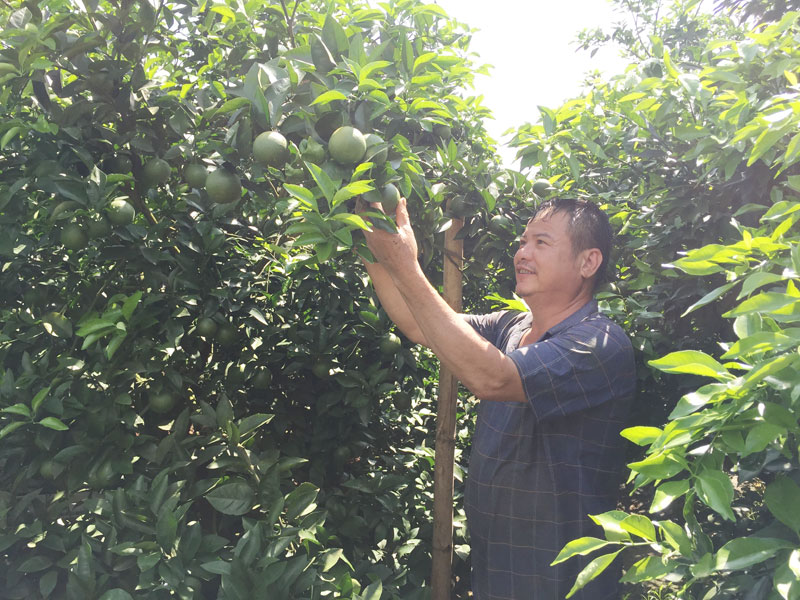



Bui Van Dung, a resident in Vo
hamlet of An Nghia commune (Lac Son district), has invested in farming orange
to raise his family’s income.
To carry out the national target programme on
building new-style rural areas between 2011 and 2017, An Nghia commune has
encouraged local residents to engage in a movement named "An Nghia commune
joins hands in building new-style rural areas”.
Both local officials and people have actively
donated land to expand rural roads. More than 41km of roads in the commune have
been concreted.
The local irrigation system, including five
reservoirs and dams, one pumping station and main canals, has been developed,
thus ensuring water supply for 83 percent of the commune’s farmland area.
The developed power system has ensured that all
households get access to electricity. Meanwhile, local kindergartens and
primary and secondary schools have also been upgraded.
All hamlets in An Nghia now have their own
cultural and sport centres. In 2017, a new cultural centre with over 200 seats
and a sport arena of the commune was built, helping to satisfy local demand for
cultural and sports activities.
Infrastructure for trading, information and
communication activities has been also upgraded. Between 2011 and 2017, through
many programmes and projects, makeshift and dilapidated houses in An Nghia were
replaced with proper solid homes. Local residents have also played an active
role in the movement aimed at "ensuring clean houses, beautiful gardens,
healthy environment and civilised alleys.”
By the end of last year, An Nghia commune had
fulfilled all 19 criteria in building new-style rural areas.
In June 2018, the Hoa Binh provincial People’s
Committee presented local authorities and people with the certificate
recognising their new-style rural area status./.